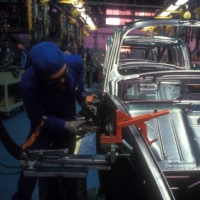
It is too early to say that U.S. businesses are moving away from offshoring en masse, but there are indications that some companies are taking a deeper look at keeping work here at home. So what has spawned this change?
Staying closer to home
One of the biggest reasons is pure convenience. It is hard to maintain a close feel with your customers and provide them insight into how your product is developed if that product is being produced on the other side of the world.
While cost will always be an important factor, today’s customers are looking for more value in the things they buy. They want to partner with businesses that provide comprehensive service and strive to meet their unique needs. If they can keep a closer eye on the product they are buying while it is being developed, that is a great selling point.
Of course, the temptation for companies to save money by moving production or call center duties overseas is still strong. The burden of corporate taxes on American businesses, and the opportunity to get tax breaks and more profit for moving jobs overseas, will be a key talking point in this year’s presidential election.
But as U.S. manufacturing plants get better at what they do by eliminating waste and streamlining their delivery process, companies may have more incentive to keep business closer to home.
Not all businesses are moving back
If corporate taxes are reduced or if penalties are created for firms who shift jobs overseas, the pendulum may swing even further toward moving jobs back to the U.S.
More domestic production is still a tough sell for many businesses, though, because many types of labor can be found at a much cheaper cost overseas. When companies choose to outsource, it often will not only save production costs, but also allow executives to focus on growth issues rather than production problems.
Executives can meet with prospective clients, engage in discussions about the reshaping of their business, and explore new opportunities because they have more time to do it. The work that was monopolizing their time is no longer a hindrance.
Tenuous times
The difficulty in forecasting whether jobs will return to the U.S. or stay offshore is that the economic climate changes almost daily. One day manufacturing is growing, the next it is declining. The best advice is to take a close look at your business model, determine what will make your company most successful, and act accordingly.

